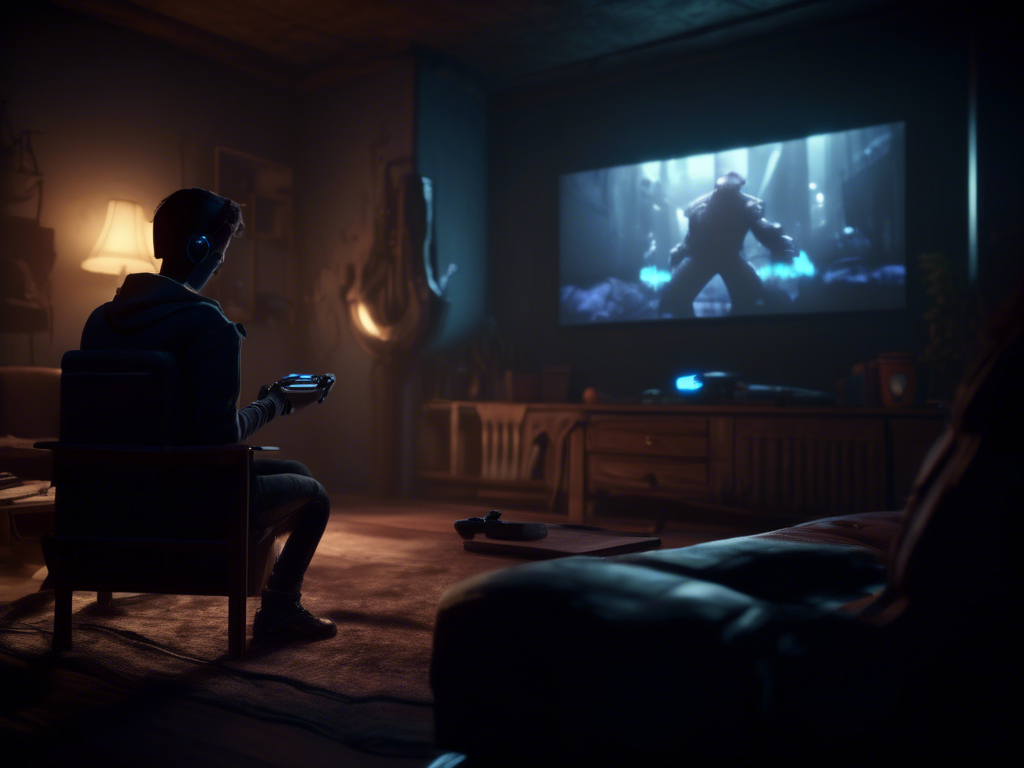The Blurring Line Between Games and Movies: When Does a Game Stop Being a Game?
Welcome to another edition of Video Games Weekly. This week, we’re diving into the growing trend of cinematic experiences in gaming and questioning when a game stops feeling like a game. With the release of Death Stranding 2 and the rise of Hollywood-style storytelling in the medium, it’s worth asking: Are we losing what makes games unique?
Death Stranding 2 has sparked debate once again, with many reviews praising its gameplay but suggesting players skip the lengthy cutscenes. This raises an important question—if a game requires skipping hours of non-interactive content to be enjoyable, is it truly a great game? Hideo Kojima’s work has always leaned toward cinematic storytelling, but his latest projects, OD and Physint, are described as blurring the lines between film and games even further.
Kojima isn’t alone in this approach. Sony has been aggressively pushing cross-media adaptations, from TV shows like The Last of Us to anime and film projects. Meanwhile, Neil Druckmann’s return to Naughty Dog after his HBO stint highlights the industry’s growing overlap with Hollywood. Even the Emmy nominations this year featured 18 nods for video game adaptations, proving how deeply intertwined the two worlds have become.
But as games chase cinematic prestige, are we sacrificing what makes the medium special? Video games offer something films can’t—interactivity, player agency, and mechanics that create unique storytelling opportunities. When developers prioritize Hollywood-style spectacle over gameplay innovation, we risk losing the essence of what makes games powerful.
This trend feels especially frustrating amid the industry’s ongoing instability. Layoffs continue to devastate studios, with Microsoft cutting thousands of jobs this month, including at Candy Crush maker King. Meanwhile, promising projects like ZeniMax Online’s Project Blackbird were reportedly canceled to focus on Fallout 5, likely influenced by the success of Amazon’s Fallout TV show.
The gaming industry doesn’t need to mimic Hollywood to be successful. Instead, it should embrace what makes games unique—mechanics, interactivity, and immersive storytelling that can’t be replicated in film. The only Hollywood trait worth adopting? Strong unions to protect workers in an increasingly volatile industry.
The News Roundup
King Developers Replaced by AI They Helped Build
Microsoft’s recent layoffs included over 200 employees at King, the studio behind Candy Crush. Reports suggest some of these developers had been training AI tools that ultimately replaced them—adding insult to injury in an already brutal job market.
Best Buy Restocking Switch 2 This Week
Still hunting for a Switch 2? Best Buy will have more units available in stores on July 17, coinciding with the release of Donkey Kong Banaza.
Ken Levine’s Judas Stays Offline
Ghost Story Games’ upcoming FPS Judas will be a complete, offline experience—no live service, no microtransactions. While details remain scarce, the studio is focused on delivering a single-player narrative experience.
Summer Games Done Quick Raises Millions
Speedrunning event SGDQ 2025 wrapped up with over $2.4 million raised for Doctors Without Borders. The next event, Flame Fatales, kicks off in September.
Subnautica 2 Studio Heads Sue Krafton
The former leaders of Unknown Worlds Entertainment are taking legal action against parent company Krafton after being ousted amid delays for Subnautica 2’s early access launch.
Indie Picks and More
Check out Kris Holt’s latest indie game roundup for fresh recommendations, and don’t miss Eurogamer’s take on Ghost of Yōtei’s lo-fi beats mode.
Got a tip or thoughts on the state of gaming? Reach out via email or Signal to share your perspective. Until next time, happy gaming—and maybe skip a cutscene or two.

